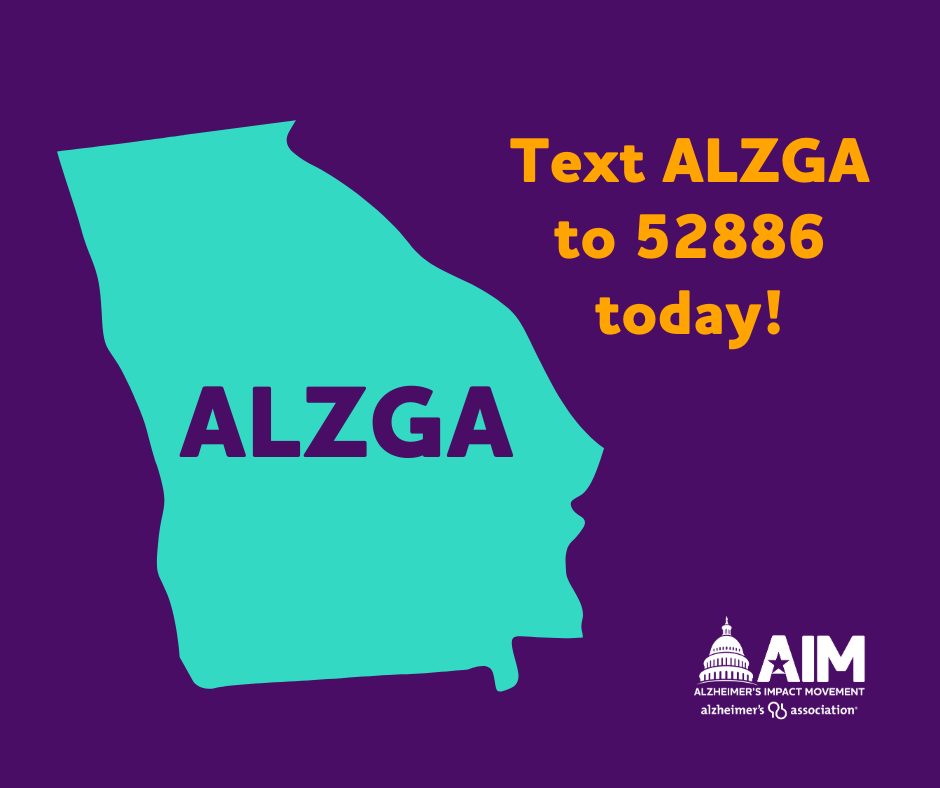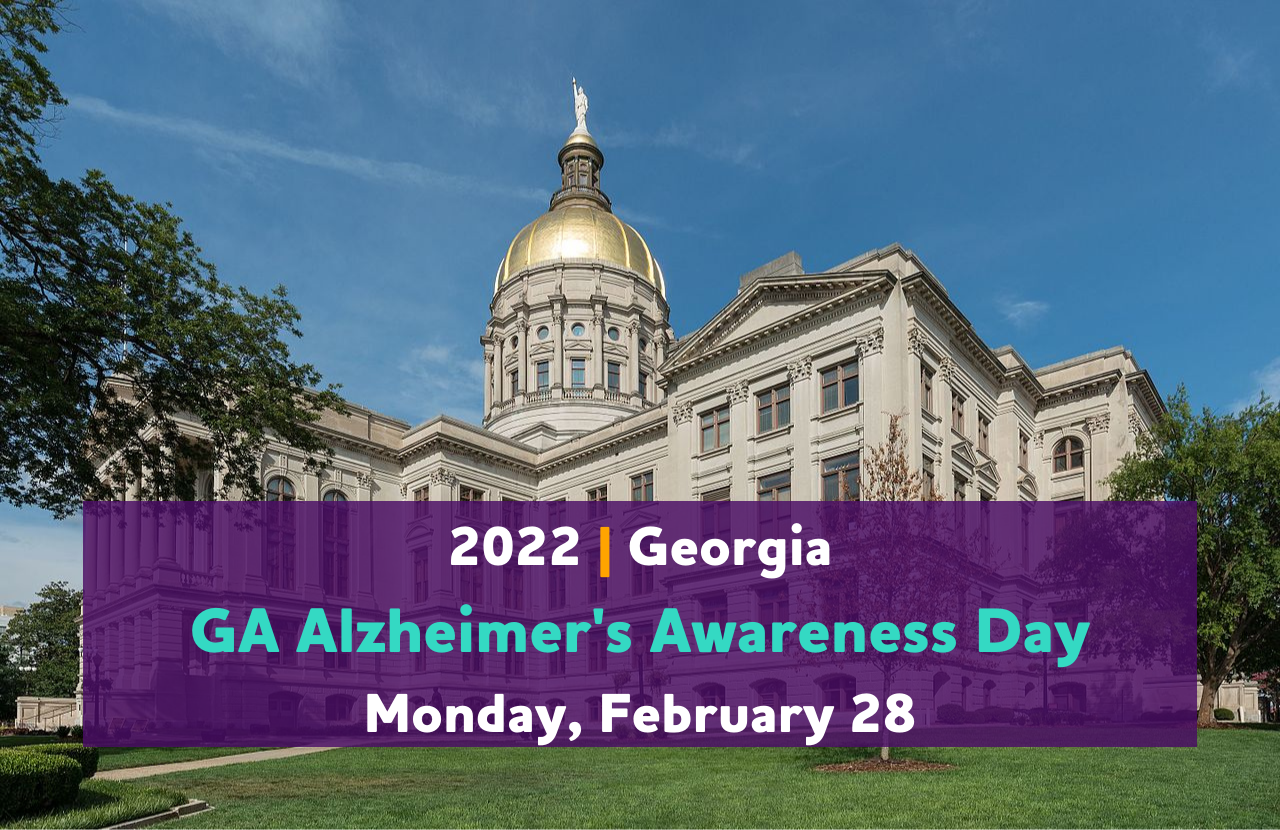Alzheimer's Advocacy in
Take Action! Become an Advocate
Addressing the Alzheimer’s crisis is as much a matter of public policy as scientific discovery, and we need your help to change the future of this devastating disease. As an advocate, you will be invited to engage public officials and policymakers in a variety of ways, urging their support for critical Alzheimer's legislation and policy changes.
Current Action Alerts
Policies
Federal Policy
Alzheimer's is a devastating disease that cannot be ignored by federal policymakers. Our goal is to see that the federal government takes bold action now to confront this growing crisis. Urge your elected officials to enact public policies that provide better health and long-term coverage to ensure high-quality, cost-effective care for the millions of people who face this disease every day. Learn more
STATE POLICYState governments are increasingly on the front lines in addressing health issues facing America. As a result, every state must tackle Alzheimer's not only as an aging issue but also as a public health crisis. Alzheimer's Association chapters across the nation work with state officials to determine regulatory and statutory standards for dementia training, provide access to respite care, designate spending for state long-term care services, control Medicaid spending, and in a variety of other ways to provide care and support for those facing this disease. Learn more
As we continue to implement Georgia’s Alzheimer’s and Related Dementias State Plan, during the 2021 legislative session, we are focused on the following priorities:
Reduce Costly Long-Term Care by Investing in Home & Community Based Services
Medicaid expenditures in Georgia for people with dementia is expected to increase 26% over the next five years. Much of that expense is associated with costly residential long-term care. Increasing access to home & community based services (HCBS) can delay admission into a LTC setting. Services such as home delivered- meals, personal emergency response systems and adult day health programs help support family caregivers. In 2019 alone, 540,000 dementia caregivers provided over 600 million hours of unpaid care. The Alzheimer’s Association, Georgia Chapter supports the Coalition of Advocates for Georgia’s Elderly (CO-AGE) request for a $10 Million increase in HCBS funding for the Fiscal Year 2022 budget. It is critical that the General Assembly invest in home & community based programs now to ensure Georgians can remain in their communities for as long as possible.
Ensure Disaster Planning Equity
The COVID-19 pandemic has highlighted the need to prioritize vulnerable populations more effectively when planning for disaster response. The elderly, especially those living with dementia, have borne the brunt of this pandemic, as evidenced by the death rates among people 65 and over. In addition, the CDC excess death statistics indicate significantly higher deaths in 2020 attributable to Alzheimer’s and dementia than previous years. Georgia’s excess death rate due to Alzheimer’s and dementia was 26% higher through October than the average over the previous five years. The Alzheimer's Association, along with the Coalition of Advocates for Georgia’s Elderly (CO-AGE), are urging the legislature to address disaster planning equity by ensuring that vulnerable populations and the providers that serve them are prioritized.
Secure a Memory Care Certification Ladder-Up Program within the CNA Curriculum
With the passage of HB 987 in 2020, Alzheimer’s advocates secured a significant improvement in the dementia training requirements for all assisted living staff with enhanced training now required for memory care providers. The Alzheimer’s Association will continue working with the Department of Community Health to ensure the effective implementation of this new law which is set to take effect on July 1, 2021. In addition, the Alzheimer’s Association will continue our collaboration with the Technical College System of Georgia (TCSG) to improve the quantity and quality of the dementia training portion of the Certified Nursing Assistant (CNA) program. With the CNA program now available tuition free through the HOPE Career Grant program at TCSG, the Alzheimer’s Association will work with TCSG to seek the development of a memory-care certification to ensure we have a workforce ready to serve the growing dementia population in Georgia.
Secure final approval of the 2020-2023 Georgia Alzheimer’s and Related Dementias State Plan (GARD) Update
Throughout 2020, the Alzheimer’s Association in partnership with the the GARD Collaborative, the GARD Advisory Council and other stakeholders, revised and refined the content of the original GARD State Plan that was signed in 2014 by Governor Deal. The updated Plan includes measurable goals and reduces overlap between the established committees’ work in order to ensure a more coordinated response to Alzheimer’s. The Alzheimer’s Association is urging Governor Kemp to approve the Updated Plan to then enable prompt implementation of the recommendations.

Text "ALZGA" to 52886 to sign-up to for text alerts to ensure you stay up-to-date on opportunities to take action on our key policies issues.
Upcoming Events
Join fellow Alzheimer’s advocates for an exciting event urging Georgia state lawmakers to support people with dementia and their families!
Alzheimer’s Awareness Day is scheduled to take place on Monday, February 28th, 4-5:00 PM. Due to COVID-19 pandemic precautions & protocols in place at the Capitol this session, our Awareness Day at the Capitol will be VIRTUAL this year!
Sign-up today to let us know if you're interested in participating and we will be sure to keep you up-to-date of details and ways to engage as the date drawers nearer!
Chapter Contact(s)
Chapter Headquarters
Georgia
41 Perimeter Center East, Suite 550
Atlanta, GA 30346
Phone 404.728.1181

